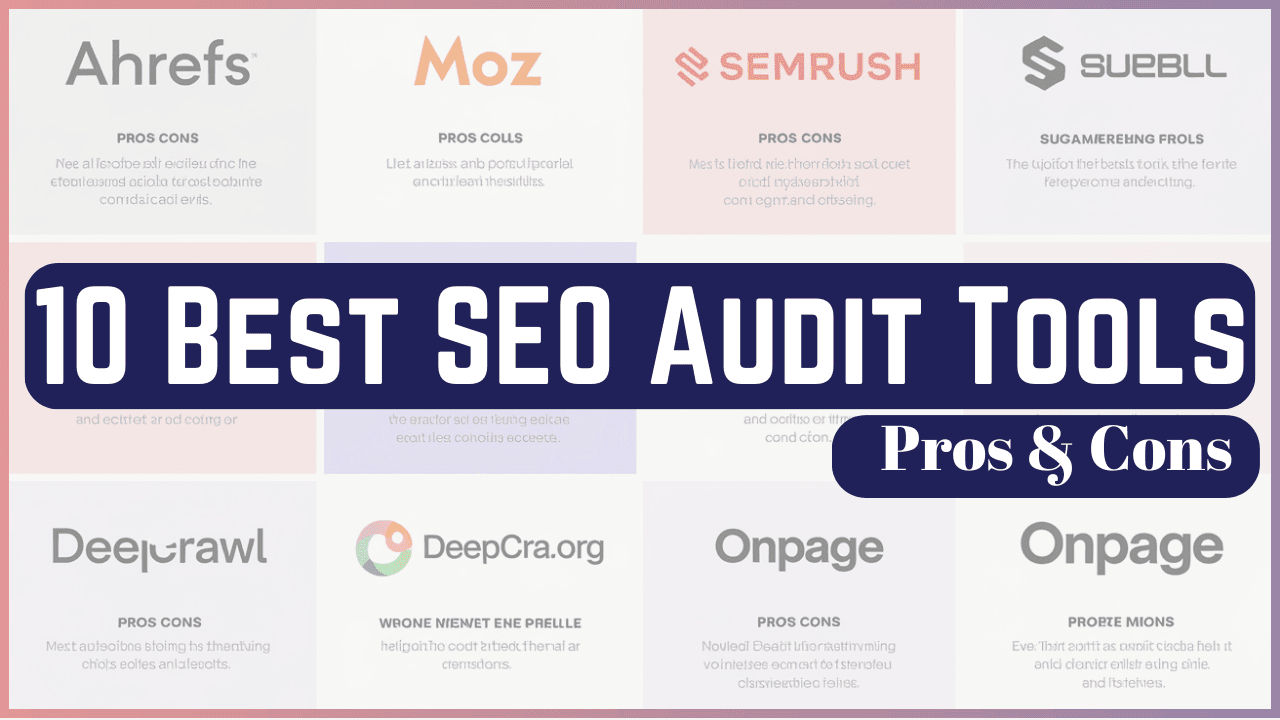Blogging is an effective way to share your knowledge. It can help you grow an online presence and make money too. To launch a blog in 2025, you need more than writing skills. With millions of blogs out there, it’s essential to have the right tools. These tools will help you optimize your content, attract readers, and grow your brand.
Whether you blog for fun or to make money, the right tools can boost your productivity and success. This guide is for beginners in 2025. It includes key blogging tools such as content creation, SEO, social media marketing, and security. These tools will help you start your blogging journey. We’ll also explore futuristic innovations to future-proof your strategy.

Best Blogging Platforms
Choosing the right platform is the foundation of your blogging journey. You can choose the most popular platform like Blogger or WordPress. But if you are confused about which platform is suitable for you then consider reading our comprehensive differences of article on Blogger vs WordPress – Which One Is Better? But I recommend choosing WordPress if you don’t have any coding hustle.
Blog Setup & Hosting Tools
A professional blog requires a custom domain and reliable hosting. I have been using Hostinger for more than four years, and it still provides a good, reliable service at a very low cost. So, if you are just starting your blogging journey, consider it. You can also choose other hosting as per your requirements. Consider reading our “Top 9 Best and Affordable Web Hosting Service Providers.”
Content Research & Idea Generation Tools
To write engaging content, you need new and trending ideas. Here are a few tools to help:
- BuzzSumo: Identify trending topics and popular content.
- AnswerThePublic: Find what people are asking.
- Ubersuggest: Get keyword and content ideas.
- Google Trends: analyze the search trend.
Content Creation & Writing Tools
Writing high-quality content requires editing and proofreading. These are some tools that can help:
- Grammarly: AI-powered grammar and spell checker.
- Hemingway Editor: Readability improvement via simplification.
- ProWritingAid: Complete writing assistant.
- Google Docs: Free and cloud-based writing tool.
- Jasper 2.0: Generates SEO-friendly drafts, brainstorming ideas, and even video scripts.
- Copy.ai’s Niche Explorer: Analyzes trending subtopics in your niche (e.g., “solar-powered gadgets” for eco blogs).
- Canva Magic Studio: AI-generated blog banners, infographics, and Pinterest pins tailored to your brand colors.
- Midjourney Blog Art Pack: Generate custom featured images with prompts like “cyberpunk-themed productivity blog header.”
Keyword Research Tools
Finding the right keywords improves blog visibility:
- Google Keyword Planner: Free tool by Google.
- Ubersuggest: User-friendly keyword tool.
- KWFinder: Focuses on long-tail keywords.
- Moz Keyword Explorer: Advanced keyword analysis.
- Surfer SEO + Voice Search Mode: Optimizes content for voice queries (e.g., “Hey Google, best AI tools for bloggers”).
- AnswerThePublic 2025: Visualizes questions people ask about your topic on TikTok and Discord.
- Google Analytics 5 (GA5): Tracks reader behavior across devices, including AR/VR interactions.
- Fathom Analytics: Privacy-focused tracking for GDPR-compliant blogs.
SEO Optimization Tools
SEO is crucial for driving organic traffic. Here are the best SEO tools for bloggers:
- Yoast SEO: Optimizes content for search engines.
- Rank Math: Advanced SEO plugin for WordPress.
- Ahrefs: Backlink analysis and SEO research.
- SEMrush: Comprehensive SEO and digital marketing tool.
Monetization Tools
a. Affiliate Marketing
- ThirstyAffiliates AI: Auto-suggests relevant affiliate links as you write (e.g., eco-products for sustainability blogs).
- PartnerStack: Connects you with Web3 and AI startups offering affiliate programs.
b. Membership & Community
- Circle.so + AI Moderation: Host paid forums with auto-generated discussion prompts.
- Ko-fi 2025: Accept crypto donations and sell AI-generated art as digital downloads.
Innovative Tools for 2025 Bloggers
| Tool Category | Innovative Feature | Purpose | Tool Example |
|---|---|---|---|
| AI Content Refinement | Real-time tone adjustment (casual → formal) | Perfect for repurposing content across platforms | Wordtune 2025 |
| AR Blog Previews | Let readers “walk through” blog topics in AR | Boost engagement for DIY/travel niches | WordPress AR Viewer Plugin |
| Blockchain Backup | Decentralized storage for blog content | Protect against hacks/server crashes | IPFS + BlogVault |
| AI-Powered UGC | Auto-generate user testimonials & reviews | Build trust without manual outreach | Testimonial.io AI |
| Holographic Media | Create 3D holograms for product reviews | Stand out in tech/gadget niches | Looking Glass XR |
Final Thoughts
The blogging landscape of 2025 is a fusion of AI efficiency, immersive tech, and ethical innovation. Beginners can save time, reduce costs, and focus on what matters: creating value for their audience, by leveraging tools like AI writers, voice-search optimizers, and blockchain backups. Start with 2–3 tools from this list, experiment, and scale as you grow. Remember, the best tools don’t replace creativity—they amplify it.
FAQs
What is the best blogging platform for beginners?
WordPress is the most recommended due to its flexibility, ease of use, and extensive plugin options.
Are free tools enough for a new blogger?
Yes! Start with free tiers (Canva, Google Analytics, WordPress). Upgrade only when you need advanced features like AI generation or AR integration.
Do I need to invest in blogging tools?
Some tools are free, but investing in premium tools can significantly improve productivity and blog performance.
How can I improve my blog’s SEO?
Use tools like Yoast SEO, Ahrefs, and SEMrush, and focus on keyword research, quality content, and backlinks.
How can I monetize my blog?
Affiliate marketing, Google AdSense, sponsored posts, and selling digital products are effective ways to earn from blogging.
Do I need to learn coding to use these tools?
No! Most tools are no-code. For example, Hostinger’s AI builder requires zero technical skills.






